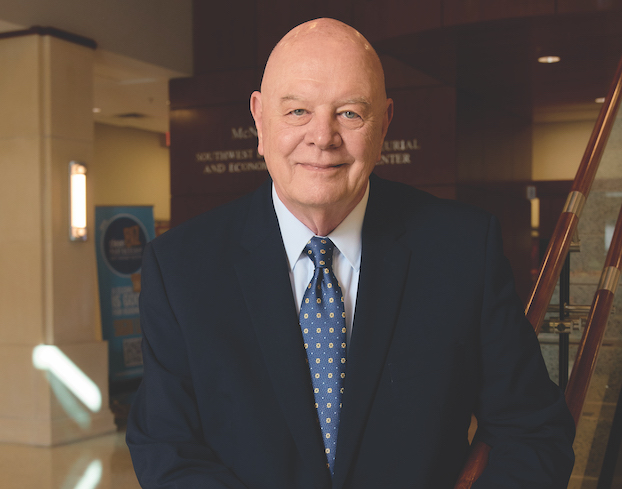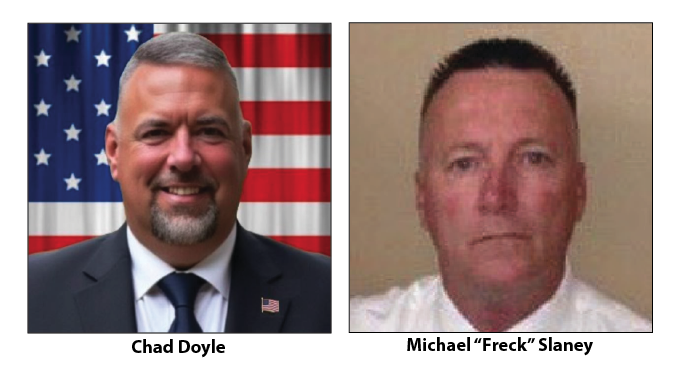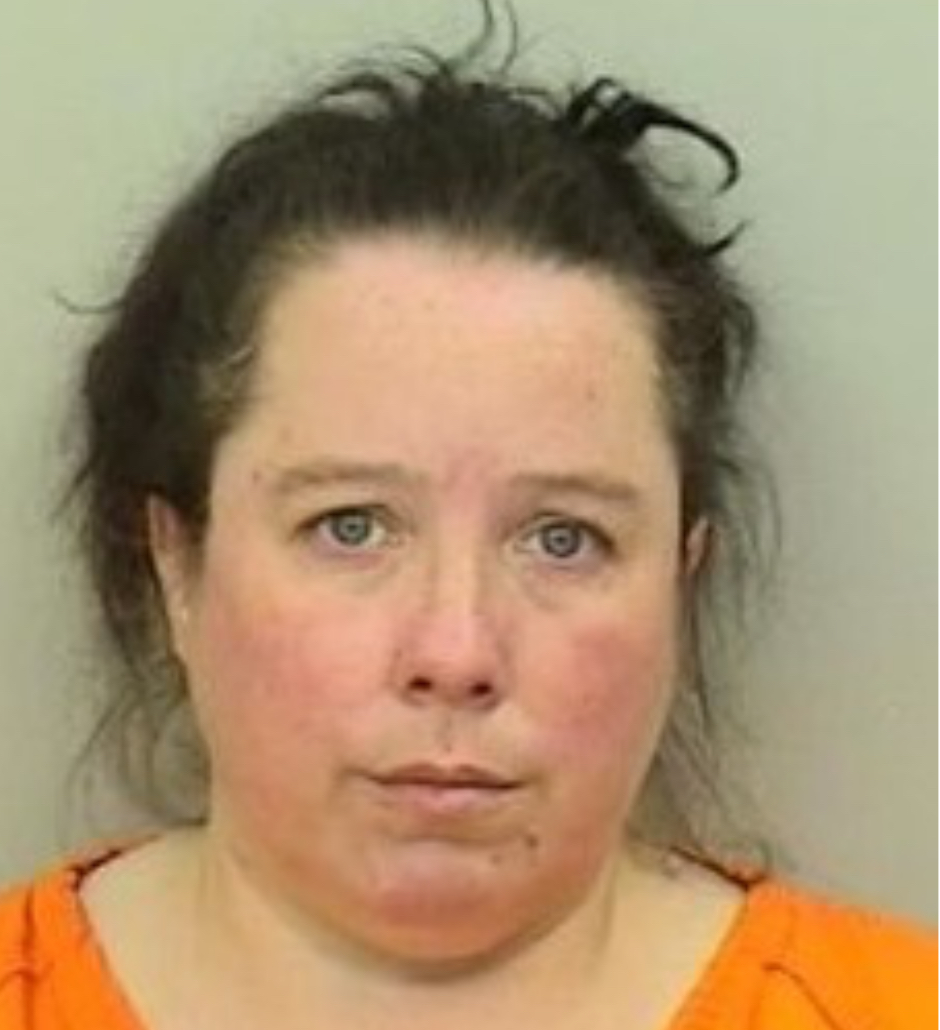George Swift’s new chapter: ‘Never too late to start over’
Published 8:08 am Sunday, December 29, 2024

- George Swift is the founding Southwest Louisiana Economic Development Alliance president/CEO. (Chad Whithed / Special to the American Press)
George Swift, the founding Southwest Louisiana Economic Development Alliance president/CEO, announced he would be stepping down earlier this year. He will continue his role until a successor is named.
Being the face of regional economic development is his second career, and it began pre-Seed Center in 2004. His first career was the radio business — and he was on air, in sales and management and as part owner.
“That’s how I got to Lake Charles,” he said. “The company I was working with bought radio stations here.”
Trending
He has no plans to retire. He’s not sure what’s next, but he’s not letting his age stop him. “Of course, I’ve always been the kind of person who, if you told me I couldn’t accomplish something — that was the magic word — I would make sure to prove you wrong.”
For years now, when someone was rude enough to ask his age, Swift convincingly threw out a number that was a decade or more younger.
On the day of the interview, he answered the inquiry with, “That’s personal” and his characteristic cat-ate-the-canary grin. (That’s how polite society might describe the expression.)
After a couple of beats, he answered, drawing it out a little, Southern and sonorous like.
“We’ll say that I’ve been around for three-quarters of a century,” he said, never saying his age.
Swift’s reliance on a wheelchair is not going to stop him, either.
Trending
He advocates for accessibility, and for the critical need to recognize diabetes symptoms early and be tested right away. Not doing so can result in amputations, even death.
“I prided myself on never going to the doctor, which was a bad mistake,” Swift said. “I was fine. Everything was good, and then my feet started burning, and then they became numb — neuropathy,” he said.
More than 14.2 percent of Louisiana’s adult population has a diabetes diagnosis, and an additional 113,000 people have diabetes but are unaware of it, according to a 2023 American Diabetes Association report.
His wife, a retired nurse, told him for years he had diabetes.
“Somebody once described our marriage as similar to Ralph Kramden, you know, Jackie Gleason and Alice Kramden on ‘The Honeymooners.’ We’ve been married 55 years and we might holler at each other once in a while but we get along fine. She’s the stable one, and has a lot of empathy for people — except me,” he said, and this time Swift really did smile.
The tingling and burning in his feet was his only warning. Diabetes does not run in his family.
Other early warning signs of low blood sugar might include sweating, shakiness, extreme hunger, nausea and dizziness. Signs of high blood sugar might include increased thirst, increased urination, fatigue and light headedness.
“If I had gone to the doctor instead of continuing to go to Dairy Queen and Sonic, I wouldn’t be in this shape,” he deadpanned.
One doctor told him his arm and leg muscles would just waste away. Swift told that doctor — who is now deceased — that he might as well leave the office and “jump off the damn bridge.” Instead he got another opinion.
He was hospitalized for two weeks, and started various therapies with a plan for more outpatient physical therapy.
After his release, he had not been home for 10 minutes when he tripped on a rug, fell and couldn’t get up. A neighbor came over and helped.
“I got to bed and I just said, ‘I’m through, ya know? I can’t make it.’ And then I got to thinking clearly and I realized there are a lot worse things to deal with.”
He didn’t say losing a son was on that list, but when asked about children, Swift said he had two. Patrick works at Citgo. He and wife Dana have two children. Madison is a senior at Sam Houston and in color guard. Catelyn is at Moss Bluff Middle and is Student Council president.
Michael died in a car wreck at the age of 23.
“Everybody deals with grief differently, and I don’t think you ever stop grieving, but you have to work through it, ” Swift aid, his voice cracking with emotion. \“Pat and I talk about Michael all the time. People worry that mentioning him might upset us. It’s more upsetting if they avoid it, and I have found that when I talk to people that have lost someone, children in particular, they want to talk.”
The family had just moved to Lake Charles when it happened. Swift was busy as chair of the Chamber and running the radio station. When the vice chair of United Way died, Swift was asked to take his duties. He stayed busy and thought Pat would be the one to collapse from the grief, but her faith sustained her and she propped him up when his busy schedule no longer helped. They were both comforted by a tremendous outpouring of support from the church, the radio station staff, and the neighborhood.
Growing up in Selma
Swift’s father was an entrepreneur, which perhaps accounts for his son’s entrepreneurial spirit. Deemed smart enough to skip first grade by his kindergarten teacher, he lost interest in school his seventh grade year. That is when he discovered the radio business.
“I would work after school at the station,” he said. “I thought it was the greatest thing ever.”
The culture and politics of the country in the late 60s and early 70s, which would have been the coming of age years for Swift, were marked by unrest such as the Vietnam War and Civil Rights demonstrations. Martin Luther King and Bobby Kennedy were assassinated.
Swift witnessed the violence on the Edmund Pettus Bridge when 600 peaceful demonstrators on a march in support of voting rights left Selma for Montgomery. That day in 1965 is known as Bloody Sunday.
The late Congressman John Lewis was beaten by men deputized by state troopers so badly that his skull was fractured. Lewis was 23.
“I got to meet him later when Congressman Charles Bustany introduced me, and I asked him how he could overcome all he went through without bitterness.”
Lewis told Swift he knew he had to keep his eye on the prize, maintain focus and resist distraction.
In this same period of time, Swift’s mother died. His father tried to save a historic hotel building in downtown Selma and failed. Swift described it as a beautiful hotel patterned after a palace in Venice. But visitors preferred the Holiday Inn and its air-conditioning.
As a journalism major at Southern Baptist University in Birmingham, Swift would head home to tape six shows at the radio station on the weekend and head back for classes.
“And then I had a wreck coming back from the governor’s press conference in Montgomery one afternoon and broke my back,” Swift said.
As the ambulance attendants rolled him down the hospital hall, he asked the nurse on duty to use the phone.
They knew each other from high school — and neither was fond of the other. She asked him if he was in pain.
“No, I’m not in pain, I just broke my back,” he told her sarcastically. That nurse was Pat Gillis who would become his wife. She told him later when she gave him his first pain shot, she jabbed the needle in hard in retaliation.
“We started dating after I got out of the hospital. I had a full-body cast so she had to drive. She really has been the rock and stable person that has to bring me back to my senses sometimes.”
Swift said he didn’t have any great words of wisdom to help ensure success.
“I think, you know, if you have faith and believe in an afterlife and you cling to that, what we do here on Earth is probably not that consequential when all is said and done.”
Getting there is half the battle
When Swift purchased a van with the wheel chair ramp, he thought it would make him more independent. It has, and he is grateful. Too many people lack the resources for equipment such as motorized chairs and vans such as his, he said.
However, now that he’s able to drive, he’s realized that a number of businesses are not accessible to wheelchair users. Some are accessible but once inside, the layout makes it difficult to navigate.
People who aren’t handicapped park in handicapped parking, and they also park in ways next to handicapped-marked spaces that block a person who uses a wheelchair from re-entering his or her van.
Accessible parking spaces must have aisles for men and women to get in and out of their vans with their wheelchairs. It’s not only important to leave handicapped parking open to those who need it, but to park correctly next to a handicapped parking space, Swift said.
A seasoned traveler, Swift always reserves an accessible room, and has found that reserving it doesn’t mean it is available when he checks in. Upgrades are not compensatory when the layout is difficult or impossible to navigate.
Incorporating accessibility features is just good for business, Swift said. It’s not just the right thing to do or the considerate choice. It can mean a wider customer base,
As the interview drew to a close, Swift was asked to complete the following statement “It’s never too late to….”
“Start over,” said the 75-year-old who leads and influences from a wheelchair, urges others to recognize the early signs of diabetes and get checked out, advocates for accessibility and is about to launch his third career.





